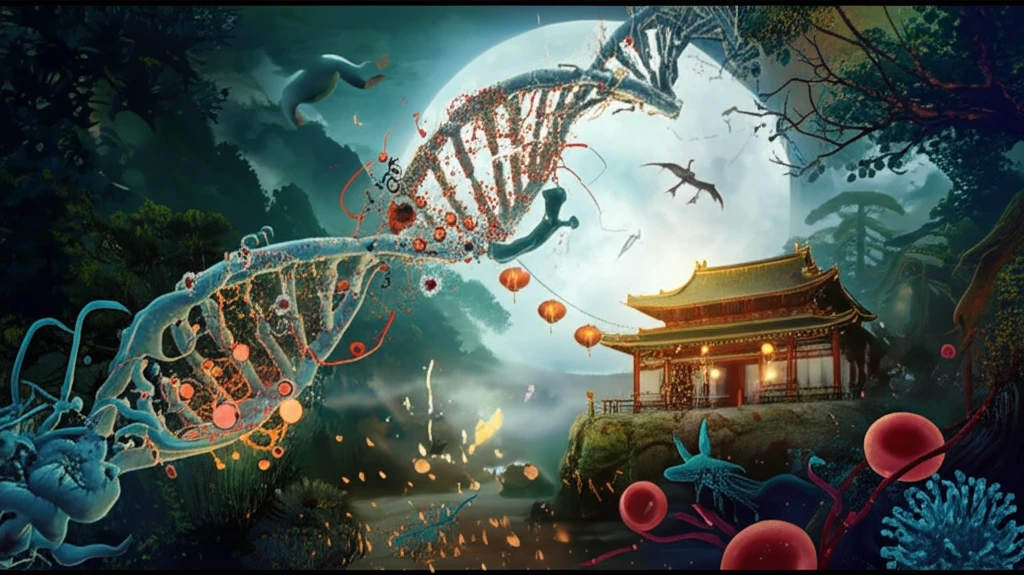
Decoding Colorectal Cancer: How Gene Mutations in Taiwanese Patients Could Lead to Better Treatments
"New research identifies key genetic drivers of colorectal cancer in Taiwanese patients, offering hope for more targeted and effective therapies."
Colorectal cancer (CRC) remains a significant global health challenge, ranking as the third most common cancer in the United States and a leading cause of cancer-related deaths in Taiwan. Understanding the complex genetic factors that drive CRC development is crucial for developing more effective prevention and treatment strategies. Recent research has focused on identifying specific gene mutations within CRC-related pathways, offering potential targets for personalized medicine approaches.
Inherited genetic mutations contribute to a portion of CRC cases, with well-known syndromes like hereditary nonpolyposis CRC (HNPCC) and familial adenomatous polyposis (FAP) playing a role. However, the majority of CRC cases are sporadic, arising from a combination of environmental factors, lifestyle choices, and the accumulation of somatic mutations – genetic alterations acquired during a person's lifetime. These somatic mutations disrupt critical cellular processes, leading to uncontrolled cell growth and tumor formation.
A new study by Taiwanese researchers delved into the genetic profiles of CRC tumors in 103 patients, seeking to identify key driver genes and their mutations. By employing high-resolution melting analysis (HRM) and direct DNA sequencing, the team aimed to unravel the specific genetic landscape of CRC in this population, potentially uncovering novel targets for future therapies.
Unveiling the Mutational Landscape of CRC in Taiwan

The research team focused on 13 driver genes involved in critical CRC-related pathways, including WNT, RAS-MAPK, PI3K, TGF-β, P53, and DNA MMR. These pathways regulate essential cellular functions such as cell growth, differentiation, and DNA repair. Mutations in these genes can disrupt these processes, leading to uncontrolled cell proliferation and tumor development. The researchers analyzed tumor samples from 103 Taiwanese patients, a group comprising 66 men and 37 women with a median age of 59 years.
- WNT Pathway: Plays a crucial role in cell growth and differentiation.
- RAS-MAPK Pathway: Involved in cell signaling and proliferation.
- P53 Pathway: Acts as a tumor suppressor, regulating DNA repair and apoptosis.
- DNA MMR Pathway: Corrects errors during DNA replication.
Implications and Future Directions
This study provides valuable insights into the genetic landscape of CRC in Taiwanese patients, confirming the importance of key driver genes and identifying novel mutations that may be specific to this population. These findings highlight the potential for personalized medicine approaches, where treatment strategies are tailored to the individual's unique genetic profile. Further research is needed to investigate the functional consequences of these novel mutations and their potential as therapeutic targets. The application of next-generation sequencing (NGS) technologies, while more complex and costly than HRM analysis, could provide a more comprehensive understanding of the CRC exome and identify additional driver genes and mutations.
